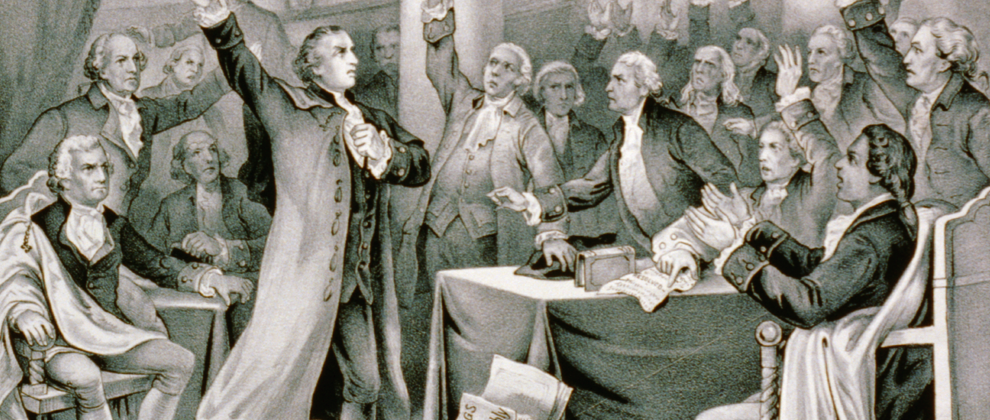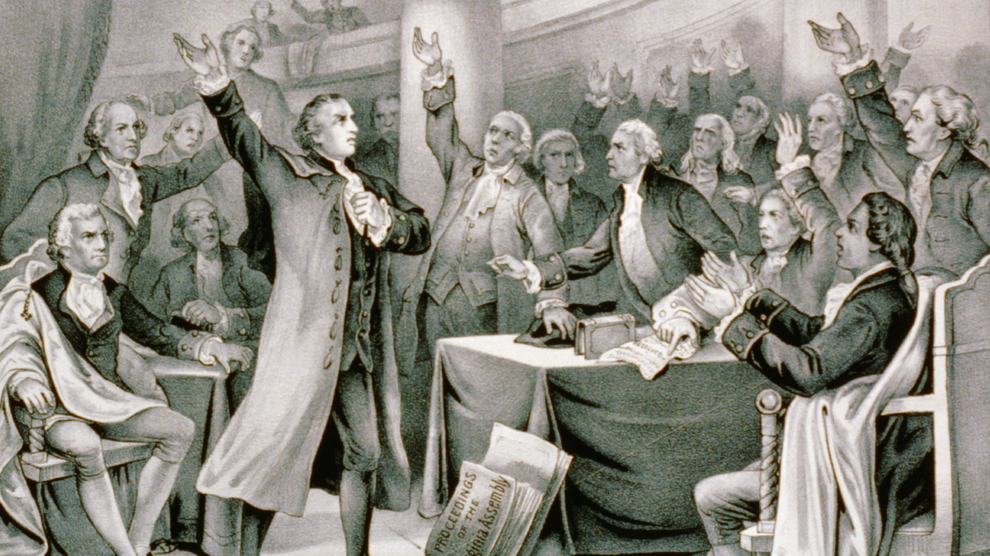



Here is Gregory Schneider at The Washington Post:
Here’s what we know: On March 23, 1775 — probably in the afternoon — a self-taught lawyer named Patrick Henry arose in a little white church in Richmond and unleashed a scorching, wig-blasting, Flying V electric-guitar solo of a speech. It literally inspired the American Revolution.
Here’s what we don’t know: Exactly what he said.
The phrase “Give me liberty or give me death” still reverberates 250 years later, quoted in countless classrooms, the online Encyclopaedia Britannica and on the Virginia 250 website. Although Henry might have said it that day, some historians are skeptical. As for the rest of the speech — “The next gale that sweeps from the north will bring to our ears the clash of resounding arms!” — there are at least two other men who deserve credit, both relatively unknown today...
William Wirt, a noted orator and U.S. attorney general during the 19th century, published the first account of the speech more than 40 years after it was delivered. And St. George Tucker, a respected judge and law professor, saw the speech as a young man and supplied Wirt with his best recollection when he was in his 50s.
No written copy of Henry’s remarks was ever known to exist. And no one took notes as he spoke...
The case against the speech being Henry’s actual words: There’s little in the historical record about the speech until 1817, when Wirt published his “Sketches of the Life and Character of Patrick Henry.” Born in Maryland, Wirt was 3 years old when Henry spoke, and there’s no indication the two ever met. Henry died in 1799 at the age of 63, having had an illustrious career as Virginia’s first post-British governor, a lawmaker and lawyer of great influence.
Wirt was one of the most admired speakers of his own era, so he was easily qualified to have written something as compelling as the book version of Henry’s speech. He had a flourishing law career in Virginia, befriended James Monroe, ran with a crowd of young Jefferson acolytes and became the longest-serving attorney general in U.S. history. Around 1805, he got the urge to write a book about the new nation’s top orators and decided to start with Patrick Henry.
He spent years researching, only to lament at one point to a friend that there was little written record.
“In short, it is, verily, as hopeless a subject as man could well desire,” Wirt wrote to Dabney Carr in 1815. “It was all speaking, speaking, speaking. … And then, to make the matter worse, from 1763 to 1789, covering all the bloom and pride of his life, not one of his speeches lives in print, writing or memory.”
But Wirt was partially bailed out by St. George Tucker — considered America’s second-ever law professor, from the College of William & Mary — who wrote him a letter that reconstructed at least some of the 1775 speech from memory. Wirt thanked him in the book’s introduction for providing what “will probably be pronounced the most interesting passage of the work.” Unfortunately, that all-important letter from Tucker disappeared long ago, so there’s no other record of it.
Read the entire piece here.






